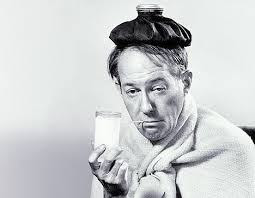Here's what I've been reading lately..."Confessions of a Sociopath," by M. E. Thomas, a clinically diagnosed sociopath. The book cast a pall over my holiday because it was so interesting that I couldn't put it down, even when I was forced to read by the light of the Christmas tree. It wasn't exactly holiday reading. My family must have thought I was nuts.
The author is unusual in that she actually likes being a sociopath. She says it confers advantages. She says her inability to experience emotional attachment allows her to be objective, to consider things on their own merit without emotional bias. She thinks the world wouldn't work without people like that. And besides, given the choice of being a wolf or a sheep who wouldn't prefer to be a wolf?
That's not to say that this condition doesn't have big disadvantages. Sociopaths get bored easy and will turn to mischief just for something to do. In Thomas's case she hinted that she filed sexual harassment complaints against innocent men she didn't like, just to watch them squirm. As a consequence she had to change jobs every two or three years because she'd get a reputation as a troublemaker. I get the feeling that sociopaths are frequent job changers.
BTW: bored easy can be a surprisingly dangerous trait. Lots of us fill in the gaps during the day with random thoughts about social relationships. Sociopaths aren't interested in things like that and the void that results sometimes drives them to do wild things to fill it. Geez, maybe thinking of social trivia keeps normal people sane. But I digress....
Another disadvantage is that sociopaths never seem to learn from bad experiences. They're driven to do what they do, sometimes with slight regard to consequences.
They're also born manipulators. They can be good listeners, but that's because they hope to discover your vulnerabilities. Sociopaths are users. Someone on the net said their true goal is to make their acquaintances into zombie slaves. They don't believe that harms us much because in their eyes the rest of us aren't fully human anyway. We're just... goldfish. It's not like they were hurting a real human being...like themselves.
Sociopaths are said to be more likely than normals to be drug abusers. Maybe that comes from being bored easy. They also have violent tendencies but many manage to keep them in check, largely by avoiding situations where they'd lose control. One commenter on Thomas' blog "Psychopath World" says he steers clear of prostitutes because their high risk life style makes them perfect victims, and he'd rather not be tempted.
Lots of psychologists subscribe to the famous list of seven sociopathic attributes found below. You can have only five and still be diagnosed as a socio, but four or less apparently disqualifies you.
Thomas says she'd add one more attribute: a lack of a sense of self. Socios are shape shifters who tailor their personality to fit the unique need of each person they're trying to manipulate. The downside of all that role playing is that sociopaths may not have a default personality. They don't have a clear idea of who they really are.
How do you spot a sociopath? Thomas offers her own list of twelve relatively minor behaviors that might serve as a tipoff (below).
It's kind of funny that sociopaths are appalled when they're confused with psychopaths. In their eyes psychopaths are just plain crazy. Psychopaths hear voices or see visions...they're delusional. Sociopaths aren't delusional at all. They take in information the same way the rest of us do, they just have different values, or at least that's how they see it. Haw! It's funny to think that in the world of psychological disorders each group has its own niche, which is strenuously defended.
What's my take on all this? I think Thomas may be right about the benefits to society of certain disorders, provided the sufferer has some self restraint. At the top of the heap are the obsessive compulsives. We all benefit from what those guys do, though they don't seem very happy and I wouldn't want to trade places with them. Sociopaths are scary because at the extreme end they can lapse into absolute evil, but a mild case...mmmm, maybe there's some benefit there, I'm not sure.
I do think that too many normal people cheerfully identify themselves as sociopaths based on the fact that they have disdain for the people they meet. That doesn't sound right. Disdain alone isn't sociopathy, it's just...I don't know...misanthropy. If the book is right, sociopaths aren't just down on people; they have no personality, are chronic manipulators and shape-shifters, are potentially violent, and never learn from experience. It's a whole package.
BTW: A commenter doesn't agree that there's a difference between psychopaths and sociopaths. I've read differently, but he cites a reputable source. Read what he says and judge for yourself.



































.jpg)















